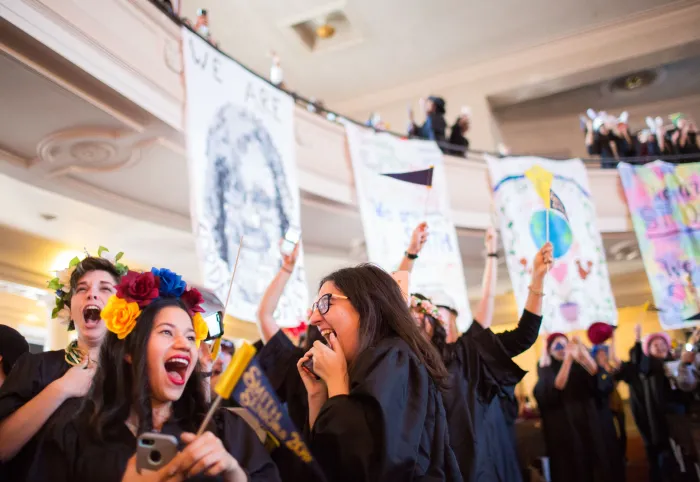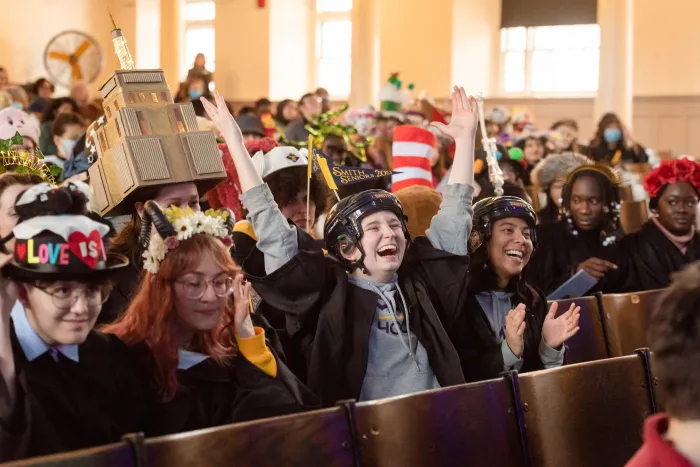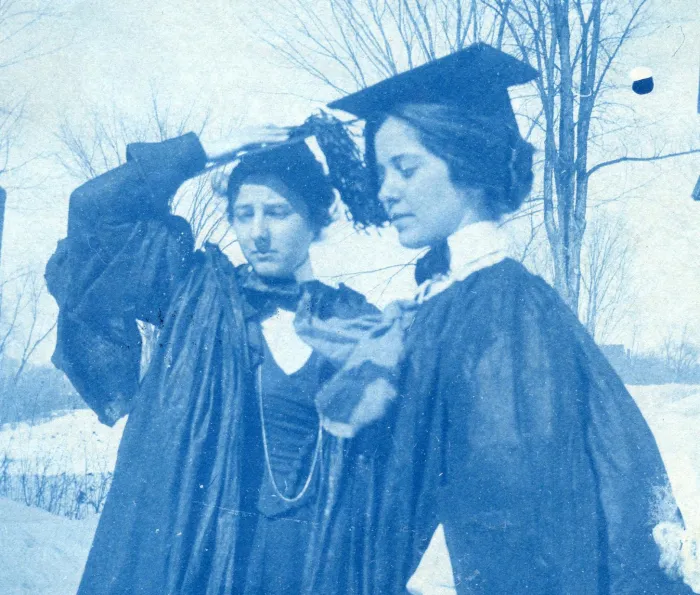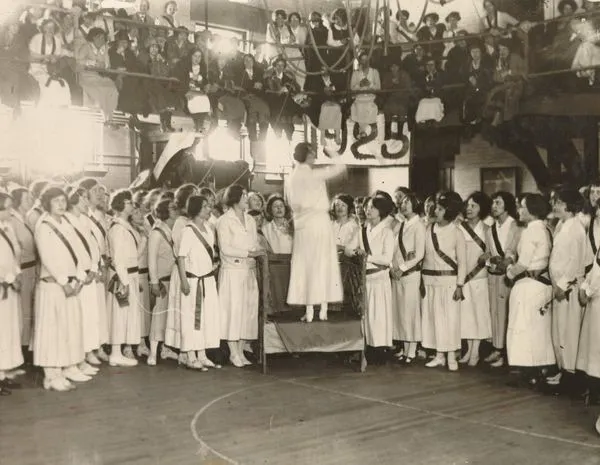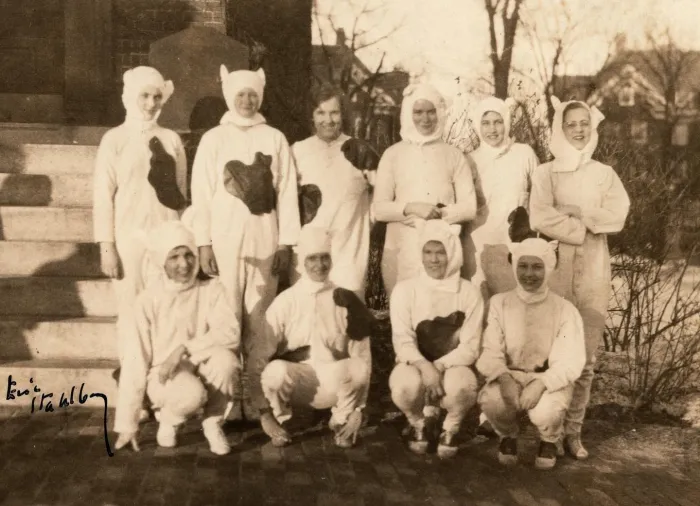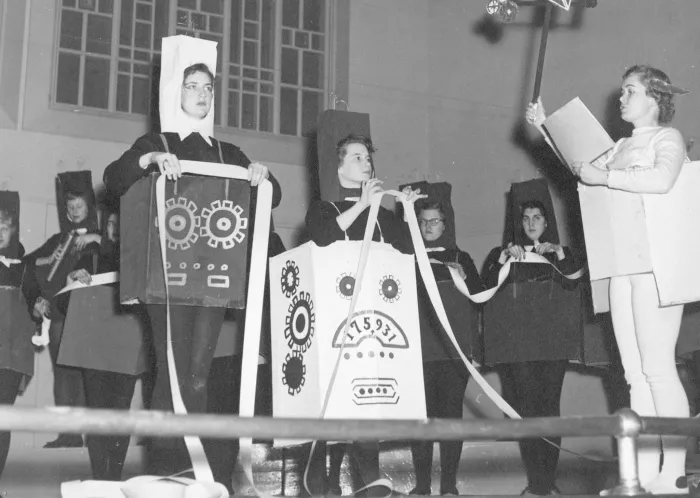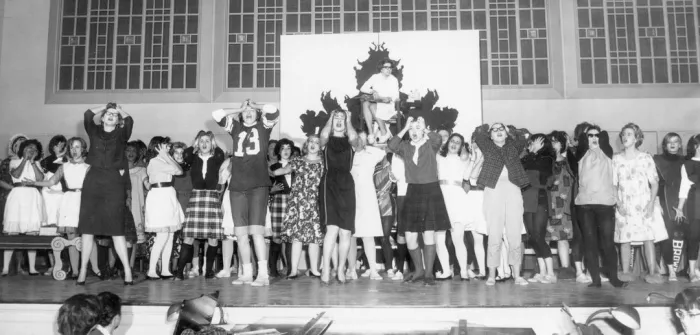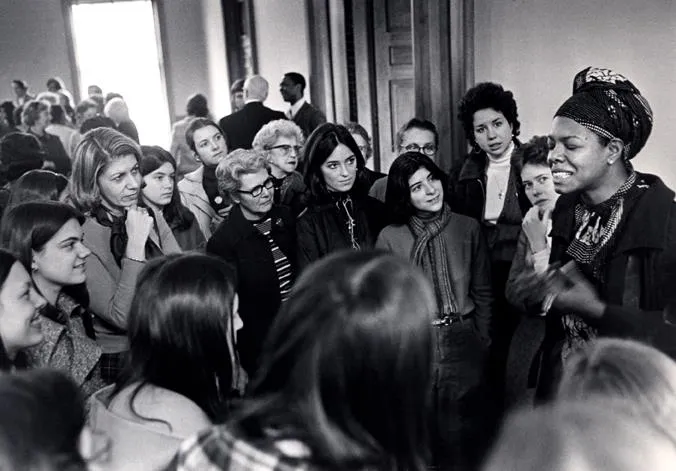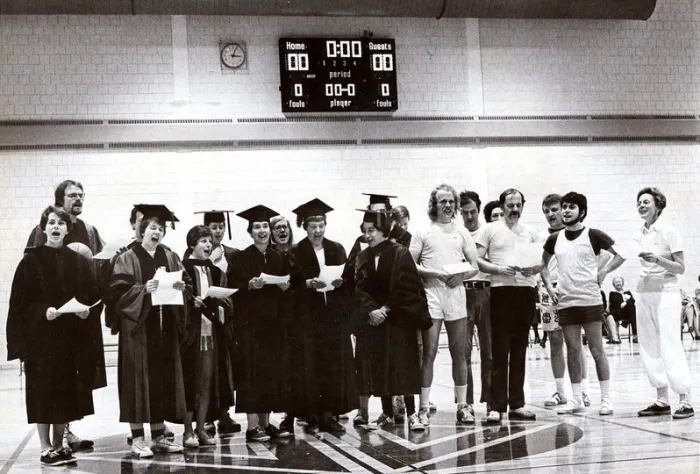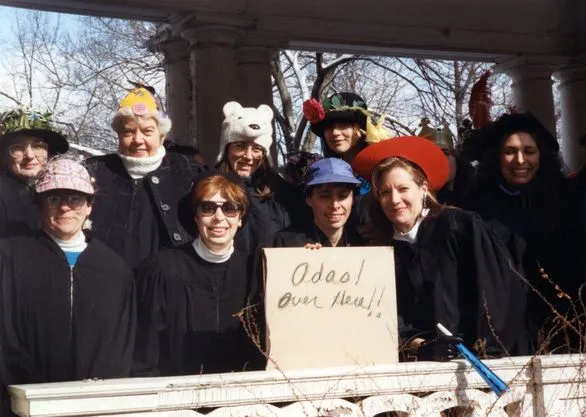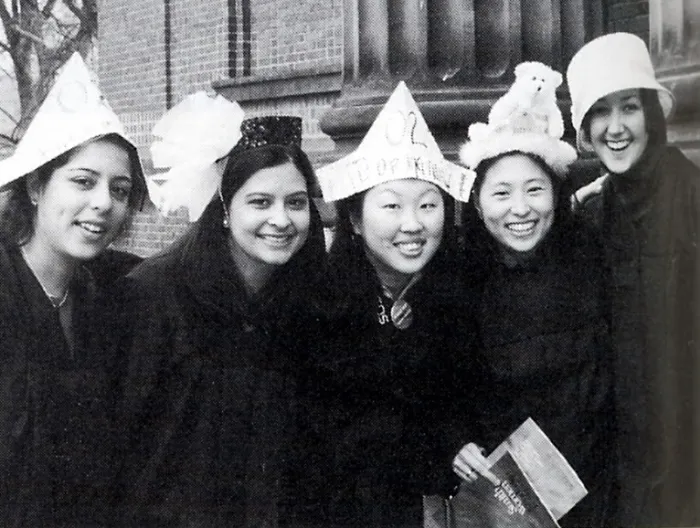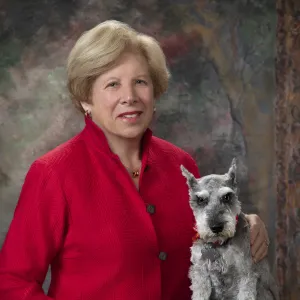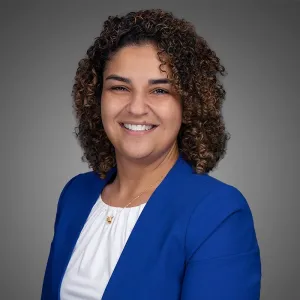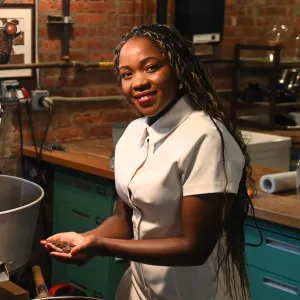Rally Day
One of Smith’s most enduring and exuberant traditions, Rally Day celebrates the power of the Smith community and the remarkable contributions Smith alums have made to our world. The day is highlighted by a festive all-college gathering at which distinguished alums are awarded Smith College Medals by the president. It is also the first time seniors wear their graduation regalia, often topped with creative hats, as they look ahead to life beyond the Grécourt Gates.
Rallying Through the Years
Since its inception in 1876, Rally Day has remained a cherished Smith tradition that has taken several forms. Whether through fun skits, imaginative hats, or basketball games against the faculty (yes, really), it’s always been a day of celebration.
Meet the 2025 Medalists
Four extraordinary alums will receive the Smith College Medal at Rally Day in February, in recognition of their contributions to their communities and the world.
Awards
Faculty Teaching Award
Given annually by the Student Government Association, the Faculty Teaching Award recognizes and rewards distinction in teaching and professors’ ability to connect to students, both in and outside of the classroom. The award was established more than 20 years ago as a way for students to thank educators for their support, encouragement and inspiration. Each year students are encouraged to submit nominations to the SGA Curriculum Committee through written and other creative forms of expression.
Elizabeth B. Wyandt Gavel Award
The Elizabeth B. Wyandt Gavel Award is given annually to Smith staff members “who have given extraordinarily of themselves to the Smith College community as a whole.” Established in 1984, the Wyandt Gavel Award is administered by the Student Government Association, which solicits nominations from students.


